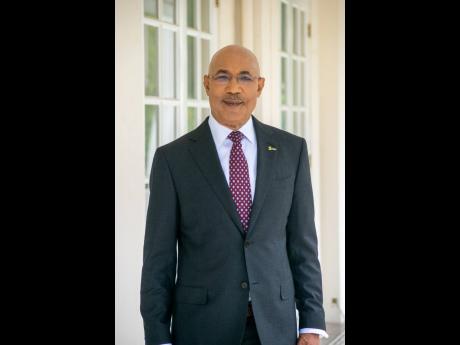Editorial | Clarity on ATI tribunal
This newspaper hopes for an explanation from the governor general, Sir Patrick Allen, regarding whether it is because of his lapse that there is no appeal tribunal for when public officials deny citizens’ requests for government information.
Additionally, it would be useful if Sir Patrick were to further explain to the public the step-by-step process for naming people to official positions when the law seems to give him that authority but after he has consulted with the prime minister and the leader of the Opposition.
He might say, too, whether in his interpretation of laws framed in such a fashion, he perceives – either because of convention or statute – any limitation on his power to act if the prime minister, another minister, or the opposition leader is not in agreement with his choice.
Or perhaps Andre Earle, KC, should, on behalf of his client, proceed to have these questions, and others, clarified by the Full Court.
At the same time, The Gleaner looks forward to action by the Holness administration to shore up the public confidence in its oft-declared commitment to transparency in government.
This issue has arisen again in the face of two developments that became public last week regarding the denial by government agencies of requests for information under the Access to Information Act (ATI).
In the first, as reported by this newspaper, Mr Earle, disclosed that one of his clients, having been denied an ATI request from an unnamed public body, sought to appeal the decision to the tribunal, which Section 32(1) of the act says should exist.
However, he was informed that the five-year life of the previous tribunal, which was chaired by retired Judge Roy Anderson, expired in February and a new one had not been named.
WRITTEN THREE TIMES
Mr Earle said he had written three times to the information minister, Dana Morris Dixon, informing her of the situation but was unaware of any change.
“We are prepared to go to court to seek leave for an order to compel the minister to carry out her job,” Mr Earle told The Gleaner. “I don’t understand how the State can be so cavalier in relation to this matter.”
Dr Morris Dixon has not commented publicly on the issue.
However, the Second Schedule of the ATI law, which deals with the establishment of the tribunal, says in its first paragraph: “The Tribunal shall, subject to paragraph 2, consist of five members appointed by the Governor General after consultation with the Prime Minister and the Leader of the Opposition.”
The referenced paragraph merely deals with how many members can hear and determine an appeal.
However, paragraphs four and five appear, on their face, to further underline the powers of the governor general with respect to the appointment of the tribunal.
The first is that “[t]he governor-general shall appoint one of the members of the tribunal appointed under paragraph I to be chairman thereof”, while paragraph five says that “after consultation with the prime minister and the leader of the Opposition”, he “may appoint any person to act in the place of the chairman or any other member of the tribunal in the case of the absence or inability to act of the chairman or other member”.
The question, it appears, is, what ought to have happened when the term of the previous tribunal expired? Whose obligation was it, whether by convention or in law, to recommend replacements?
If the responsibility lies with the governor general, what are the protocols by which this is done, and were they followed?
And if either or both parties disagreed with the governor general’s choices, what was his follow-up?
COMMITMENT TO GOOD GOVERNANCE
The ATI legislation, and the transparency in government that it implies, is ostensibly a commitment to good governance.
But the consistent, and ongoing, efforts by public officials to circumvent the intention of the law continues to weaken trust in the institution of the State and its leadership.
Indeed, as we noted, the matter highlighted by Mr Earle is not the only one that came to public attention last week.
The radio station Nationwide News disclosed that information it sought about the salaries of the current acting director of public prosecutions, Claudette Thompson, and the person she replaced, Paula Llewellyn, was turned down by the Public Service Commission (PSC), claiming that this would breach the privacy provisions of the Data Protection Act (DPA).
The PSC, using the same law, also declined the radio station’s request for clarity on how it treated Ms Llewellyn’s current employment status, given a court ruling that a bid to extend her tenure was unconstitutional.
The Gleaner considers the reported basis of the PSC’s decision to be, at best, spurious and without merit. Indeed, this information, it seems to us, is precisely within the DPA’s “public interest” standard, which trumps privacy.
Indeed, how taxpayers compensate their servants is not a private matter. Neither can we contemplate what could be so secret – unless she is part of a new, shadowy, global- intelligence network – about the terms and the basis of Ms Llewellyn’s continued engagement.
What has become clear, though, is that the DPA is becoming the new gadget in the State’s cloak-and-dagger games.

